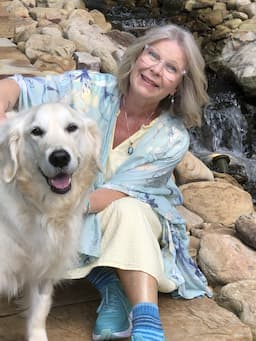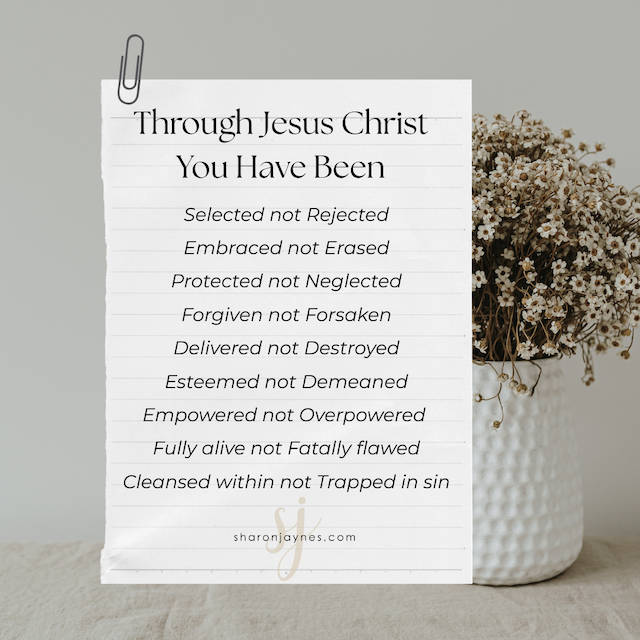Seeing Christ in Them
“When the Son of Man comes in his glory, and all the angels with him, then he will sit on his glorious throne. Before him will be gathered all the nations, and he will separate people one from another as a shepherd separates the sheep from the goats. And he will place the sheep on his right, but the goats on the left. Then the King will say to those on his right, ‘Come, you who are blessed by my Father, inherit the kingdom prepared for you from the foundation of the world. For I was hungry and you gave me food, I was thirsty and you gave me drink, I was a stranger and you welcomed me, I was naked and you clothed me, I was sick and you visited me, I was in prison and you came to me.’ Then the righteous will answer him, saying, ‘Lord, when did we see you hungry and feed you, or thirsty and give you drink? And when did we see you a stranger and welcome you, or naked and clothe you? And when did we see you sick or in prison and visit you?’ And the King will answer them, ‘Truly, I say to you, as you did it to one of the least of these my brothers, you did it to me.’ “Then he will say to those on his left, ‘Depart from me, you cursed, into the eternal fire prepared for the devil and his angels. For I was hungry and you gave me no food, I was thirsty and you gave me no drink, I was a stranger and you did not welcome me, naked and you did not clothe me, sick and in prison and you did not visit me.’ Then they also will answer, saying, ‘Lord, when did we see you hungry or thirsty or a stranger or naked or sick or in prison, and did not minister to you?’ Then he will answer them, saying, ‘Truly, I say to you, as you did not do it to one of the least of these, you did not do it to me.’ And these will go away into eternal punishment, but the righteous into eternal life.” (Matthew 25:31–46)
In our last post (“Breaking Down the Walls”), we talked about how Jesus’ parable of the Good Samaritan teaches us to consider as a neighbor anyone who comes across our path who is in need. This is especially true of those who we might ordinarily dismiss as our neighbor. We also said that we in the church have been given the ministry of reconciliation, and part of that ministry certainly includes ethnic and racial reconciliation.
When Jesus talked about the two greatest commandments, He tied them together. Notice what He says here:
[The lawyer answered,] “You shall love the Lord your God with all your heart and with all your soul and with all your strength and with all your mind, and your neighbor as yourself.” And [Jesus] said to him, “You have answered correctly; do this, and you will live” (Luke 10:27-28, emphasis added).
As we said in the previous post, it’s impossible to do one without the other. One cannot claim to love God if he is not loving His neighbor. Likewise, one who does truly love his neighbors does so because of his love for God. And, one who truly loves God will love his neighbor, and that especially includes those who are hurt, disadvantaged, marginalized, broken, or forgotten by society.
Let’s now talk about one important part in loving our neighbor. Our last post made the point that we can be Christ to another. We are to represent Christ to others in our truth, love, and self-giving service. But notice what Jesus says in the statement above: “Truly, I say to you, as you did it to one of the least of these my brothers, you did it to me. . . . as you did not do it to one of the least of these, you did not do it to me” (Matt. 25:40, 45, emphasis added). It’s an somewhat obvious truth that Jesus counts service to “the least of these” as service to Him. I suggest, however, that there is more to it than that. We actually find Christ when we serve “the least of these.”
Greg Paul, director of Sanctuary, a ministry to Toronto’s poor and homeless, wrote of a deeply forming experience in caring for a gay man dying of AIDS. Neil had deteriorated to a shell of his former self, without strength or mobility. One day, Greg stopped in on Neil to find him in a panic, struggling with his bedsheets after having soiled himself. Greg picked him up, bathed him, cleaned his bed, dressed him, and placed him back in the bed.
“He lay quietly back against the pillows and allowed me to take his feet, one at a time, and tuck them under the covers. Doing so, I noticed that one foot, somehow, had not gotten completely clean. Getting a washcloth, I wiped that foot. As I did so, I was struck by what I can only describe as a powerful revelation, two streams of thought converging, and both seeming to me to be the voice of God.
“Cradling his foot in my hands, my mind was filled with the image of Jesus washing the feet of his disciples at the Last Supper, a towel around his waist, determinedly taking the servant’s role. I had been meditating on that story from John’s gospel just the day before, and now I could almost see Jesus hunched over Peter’s foot, his hair hanging forward and obscuring his face, quietly insisting against Peter’s protestations that those feet, but only the feet, needed to be washed. This moment was what my whole time with Neil had been for! This was what it meant to be the presence of Christ. I had been looking for opportunities to preach, wanting to effect a clear and possibly dramatic conversion. I realized in that moment that my longing for those things was as much or more an indication of my desire to be successful as they were of my passion for Neil’s soul. It became clear that being Jesus to Neil, while it certainly included praying for him and announcing the good news to him, was most perfectly summed up by the mundane and even odious task of gently wiping excrement from his foot.
“At the same time, I was deeply touched by his profound vulnerability. His foot was bare, and he hadn’t even enough strength left in his ruined body to lift it and put it back under the covers. The words of Jesus were ringing in my ears: ‘I needed clothes and you clothed me, I was sick and you looked after me. . . . Whatever you did for one of the least of these brothers of mine, you did for me.’ This, too, was the purpose of my time with Neil. For the first time during our whole relationship, I saw Jesus in Neil. I had been seeing him as someone upon whom I could practice my own imitation of Christ, and had missed the Presence right before me. I recognized that Neil was, at that moment, a physical representation to me of a vulnerable and dying Christ. Jesus was allowing me to clothe him, and look after him, by caring for his ‘brother.’
“After a quiet moment or two, trying to assimilate these powerful impressions, I asked Neil if he would like to pray. ‘Yes, I’d like that,’ he whispered. I prayed first. I have no idea what I said. When I was done, I thought Neil might have fallen asleep. But then he spoke, whispered, into the stillness of that room. He didn’t address his prayer to anyone, just spoke. And the words he spoke were words of blessing upon me. He knew he was dying, yet he asked nothing for himself; instead, he blessed me! Then he was so quiet and still, I thought again that he might have drifted off. But he spoke once more, without opening his eyes, and his voice this time was clear and surprisingly strong.
“‘In the name of Jesus.’
“Apart from saying good-bye, they were the last words I ever heard him speak. When I visited him again a couple of days later, he was curled up in a tight little ball, unconscious. A week after that, he was gone.[1]
Why do we not see Christ in the “others”? We see those who are different from us through lenses that, as we will talk about in our next post, demand that “they” become like “us.” It’s only in serving them that we can see Christ in them. As we become Christ to them, they become Christ to us.
[1] Greg Paul, God in the Alley: Being and Seeing Jesus in a Broken World, cited in The Kingdom Life: A Practical Theology of Discipleship and Spiritual Formation (pp. 221-223).





